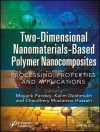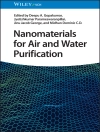The book gives detailed insights into the application of nanomaterials in food packaging, covering recent innovations as well as future perspectives. The chapters provide a comprehensive review on the types of nanomaterials used in food packaging and their processing and characterization. In addition, the book discusses the use of nanoparticles in the development of active and functional food packaging and the related environmental and toxicological aspects.
Spis treści
Introduction to Nanotechnology-Enhanced Food Packaging Industry
An Overview of Biopolymers in Food Packaging Systems
Nanostructures Based on Starch, Their Preparation, Processing and Application in Packaging
Cellulose Nanostructures and Its Application as Effective Food Packaging Systems
Chitosan-Based Nanoparticles and Their Applications in Food Industry
Nutrients-Based Nanocarriers and Their Applications in Packaging Systems
Active Packaging Systems Based on Metal Oxide Nanoparticles
Fabrication of Intelligent Packaging Systems using Nano-Indicators and Sensors
Nanostructure-Based Edible Coatings as a Function of Food Preservation
An Overview of Higher Barrier Packaging Using Nanoadditives
Nanostructure-Based Multilayer Food Packaging Films
Characterization Techniques for Nanostructures in Food Packaging
Biodegradability Assessment of Polymer-Based Films
Nanobiotechnology in Food Preservation and Molecular Perspective
Environmental and Toxicological Aspects of Nanostructures in Food Packaging
O autorze
Jyotishkumar Parameswaranpillai is Faculty member in the Center of Innovation in Design and Engineering for Manufacturing at the King Mongkut’s University of Technology North Bangkok, Thailand. He has published more than 80 journal articles and edited five books. He received numerous awards and recognitions including the prestigious Kerala State Award for the Best Young Scientists in 2016 and the INSPIRE Faculty Award in 2011.
Radhakrishnan E. K. is currently working as Assistant Professor in the School of Biosciences of the Mahatma Gandhi University, Kottayam, India, as Director of the Business Innovation and Incubation Centre (BIIC) and as Joint Director of Inter University Centre for Organic Farming and Sustainable Agriculture (IUCOFSA). He completed his doctoral degree from Rajiv Gandhi Centre for Biotechnology, Thiruvananthapuram, Kerala, India in 2008 and did post-doctoral studies at the University of Tokyo, Japan, in 2010. His research area includes plant microbe interactions, microbial natural products microbial synthesis of metal nanoparticles, polymer-based nanocomposites for food packaging and medical materials with antimicrobial effects.
Aswathy Jayakumar has obtained her Ph D in Biotechnology in School of Biosciences, Mahatma Gandhi University, Kottayam, India. After her MSc in Biotechnology, she has completed an advanced degree in biosciences and has authored seven publications and contributed to five book chapters. She received the Best Paper Award in Biotechnology 2019 at the Kerala Science Congress. Her area of research is functional biology of endophytic microorganisms and nanotechnology-based food packaging systems.
Sanjay Mavinkere Rangappa is Assistant Professor in the Department of Mechanical and Process Engineering at the King Mongkut’s University of Technology North Bangkok, Thailand. He received his Ph D from Visvesvaraya Technological University, India. His research areas include natural fiber composites and polymer composites. He has published more than 35 journal articles and several book chapters.
Suchart Siengchin is President of the King Mongkut’s University of Technology North Bangkok (KMUTNB), Thailand. After his Ph D from University of Kaiserslautern, Germany, he did Postdoctoral Research at the Kaiserslautern University and Purdue University, USA. He received the habilitation at Chemnitz University, Germany, in 2016. His research focuses on polymer processing and composite materials. He has published more than 80 journal articles.












